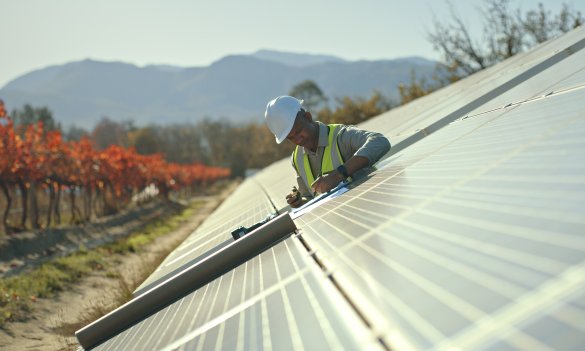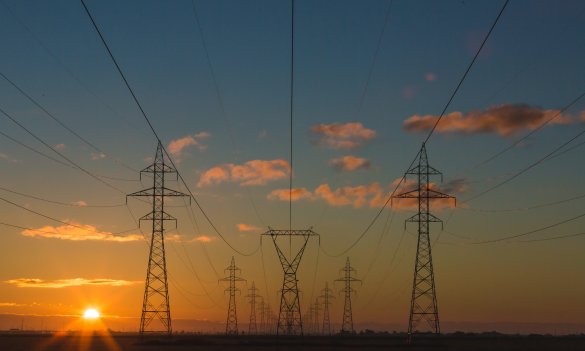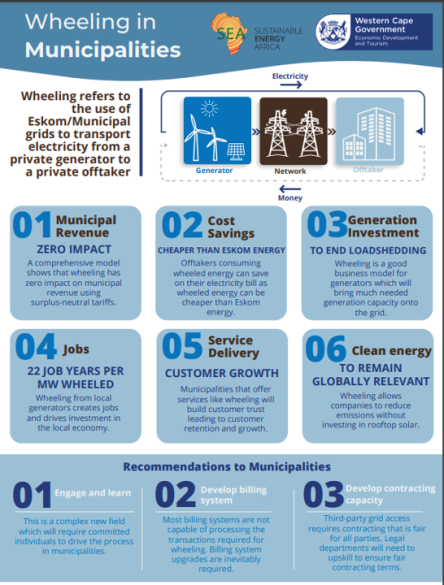Wheeling
Wheeling - A step closer to a more open electricity market
Eskom currently generates electricity which municipalities ‘wheel’ to their own end-users, adding a fee to cover the costs associated with that service (this covers things like maintenance of the network and metering infrastructure). With third-party wheeling, the source of energy is different.
The aim is that private companies now have a choice if their energy comes from Eskom or an Independent Power Producer (IPP). If the power comes from an IPP, then there will be costs added for each network that the energy travels through – this may include Eskom and / or the municipal network. Practically, depending on the wheeling model used, if an IPP located inside a municipality can generate energy cheaper than Eskom WEPS rates this results in cost savings to the end-user.
Wheeling support provided by and through the Western Cape Government (WCG) to date has involved supporting select municipalities in establishing municipal energy wheeling frameworks and tariffs, thereby unlocking the potential for significant private sector investment in renewable energy generation through removing some of the geographical location-based limitations. Additional work is expected to address municipal revenue effects, as well as look at developing standardised use-of-system agreements to assist in lowering the cost of implementing wheeling.
Watch: Electricity Wheeling in South African Municipalities
What is electricity wheeling?
Wheeling is the act of transporting electricity from a generator to a remotely located end-user through the use of an existing distribution or transmission system. This may also be across multiple different distribution networks, such as through Eskom to a municipality.
This does not necessarily mean that the exact electrons entering the transmission network from the generator will be transported to the end-user. Rather, wheeling frameworks and rules guide the balancing of energy from the generator with the end-user consumption through a financial transaction. This also includes overcoming system losses.
How will this help with increasing low-carbon energy in the province?
While small-scale embedded generation (SSEG) in the province is widely supported, sometimes the requirements for electricity at a specific site are more than the energy that can be generated given the space available. Alternatively, sometimes greater energy output can be generated in a specific geographical location (e.g. you probably get more energy from the same solar PV plant if it is located in a flat area with lots of solar irradiation, versus next to a mountain with lots of shadows).
By implementing wheeling frameworks and tariffs, the end-users can buy power from generators located at more favourable geographic locations. Additionally, these frameworks provide a mechanism for municipalities to recover the cost of maintaining the electricity network and administrative functions.
Other benefits include:
- More energy inputted into the grid will result in less load shedding at national level.
- End-users get access to energy that is potentially lower-carbon or cheaper than other supplies.
- End-users may get access to more predictable energy cost increases.
- Local development of energy projects can result in more jobs, both in construction and operational phases.
- Municipalities are fairly compensated for the costs of the distribution of electricity.
- A more stable and cost effective operating environment can result in significant economic growth, which ties into the G4J strategy.
Wheeling in Municipalities
The Western Cape Government developed the Wheeling Toolkit to assist municipalities with the implementation of third-party electricity wheeling at municipal level. It includes a high-level guide as to the steps for implementation as well as access to resources such as templates and spreadsheets to calculate accurate tariffs.
Wheeling is an important enabler that will allow private sector to build much needed electricity generation infrastructure unconstrained by geographic limitations, while still allowing municipalities to maintain their important functions in terms of the distribution of electricity. The implementation sounds simple, but in reality there are many different legal and administrative hurdles that need to be passed in order to get it started. The guide, templates and spreadsheets included in this toolkit will reduce the implementation burden on municipalities,making it easier to wheel.
City of Cape Town
- The City is running a pilot programme for wheeling. The application process was closed in June 2022. The first project has already produced power into the grid and the full operationalization of wheeling is expected soon..
George Municipality:
- George Municipality is currently running a pilot programme, and looking at new applications as well.
For information and resources, please take a look at our wheeling resources and energy resources pages.




